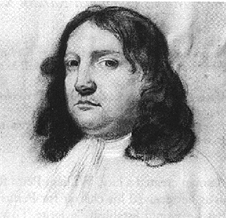 |
|
|
History
of the United States > The Colonial Period |
|
The early 1600s saw the beginning of a great tide of emigration from Europe to North America. Emigration from England often was not directly sponsored by the government but by private groups of individuals whose chief motive was profit. The first English colony was founded at Jamestown, Virginia, in 1607. Early settlements developed in New England, in the Middle Colonies and the Southern Colonies. In 1620, the Pilgrims arrived on the Mayflower and founded Plymouth Colony in Massachusetts. In 1681, William Penn, a wealthy Quaker, received a large tract of land, which became known as Pennsylvania. To help populate it, Penn actively recruited immigrants, among them many religious dissenters, e.g. Quakers, Mennonites, Amish, Moravians and Baptists. The first German community was established in Pennsylvania in 1683. By 1733, thirteen English colonies had been established along the Atlantic Coast. Most emigrants left their homelands to escape political oppression, to seek the freedom to practice their religion, or for adventure and opportunities denied them at home. Most settlers were English, but there were also Dutch, Swedes and Germans, a few French Huguenots and a scattering of Spaniards, Italians and Portuguese. Few colonists could finance the cost of passage and in some cases, they came as indentured servants, agreeing to work as contract laborers for a limited time. In other cases, the expenses of transportation and maintenance were paid by colonizing agencies. The first African slaves were brought to Virginia in 1619. Initially, many were regarded as indentured servants who could earn their freedom. By the 1660s, however, Africans were brought to America in shackles for a lifetime of involuntary servitude. The economic and social structures in New England and the middle colonies differed from those of the southern settlements. New England has generally thin, stony soil and long winters, making it difficult to make a living from farming. Turning to other pursuits, the New Englanders harnessed water power and established grain mills and sawmills. With the bulk of the early settlers living in villages and towns around the harbors, many New Englanders carried on some kind of trade or business. The sea became a source of great wealth. Society in the middle colonies was more varied and cosmopolitan than in New England. By the end of the 18th century, 30,000 people lived in Philadelphia, representing many languages, creeds and trades. Though the Quakers dominated in Philadelphia, elsewhere in Pennsylvania others were well represented. Germans became the colony's most skillful farmers. Important, too, were cottage industries such as weaving, shoemaking, cabinetmaking and other crafts. The Scots and Irish tended to settle in the back country, where they cleared land and lived by hunting and subsistence farming. The southern settlements were predominantly rural. In Virginia and Maryland, the planters, supported by slave labor, held most of the political power and the best land. At the same time, yeoman farmers, who worked smaller tracts of land, sat in popular assemblies and found their way into political office. Charleston, South Carolina, became the leading port and trading center of the South. Whereas Virginia was bound to a single crop - tobacco -, North and South Carolina also exported rice and indigo. By the early 18th century, colonial legislatures held two significant powers: the right to vote on taxes and expenditures, and the right to initiate legislation rather than merely act on proposals of the governor. The legislatures used these rights to check the power of royal governors and to pass other measures to expand their power and influence. In time, the center of colonial administration shifted from London to the provincial capitals. See also: |
||
| Texts
are abridged from U.S. State Department IIP
publications and other U.S. government materials. |
||
| What kind of information materials are available?
CD: These documents are available in fulltext format on the About the USA CD-ROM. Teachers: Request a copy for classroom use. L: Selected documents are available in German as well as other languages, including Arabic, Chinese, French, Spanish, Persian and Turkish. |
DISCLAIMER
Any reference obtained from this server to a specific commercial product, process, or service does not constitute or imply an endorsement by the United States Government of the product, process, or service, or its producer or provider. The views and opinions expressed in any referenced document do not necessarily state or reflect those of the United States Government. |
 U.S. Diplomatic Mission to Germany /Public Affairs/ Information Resource Centers Updated: December 2008 |
